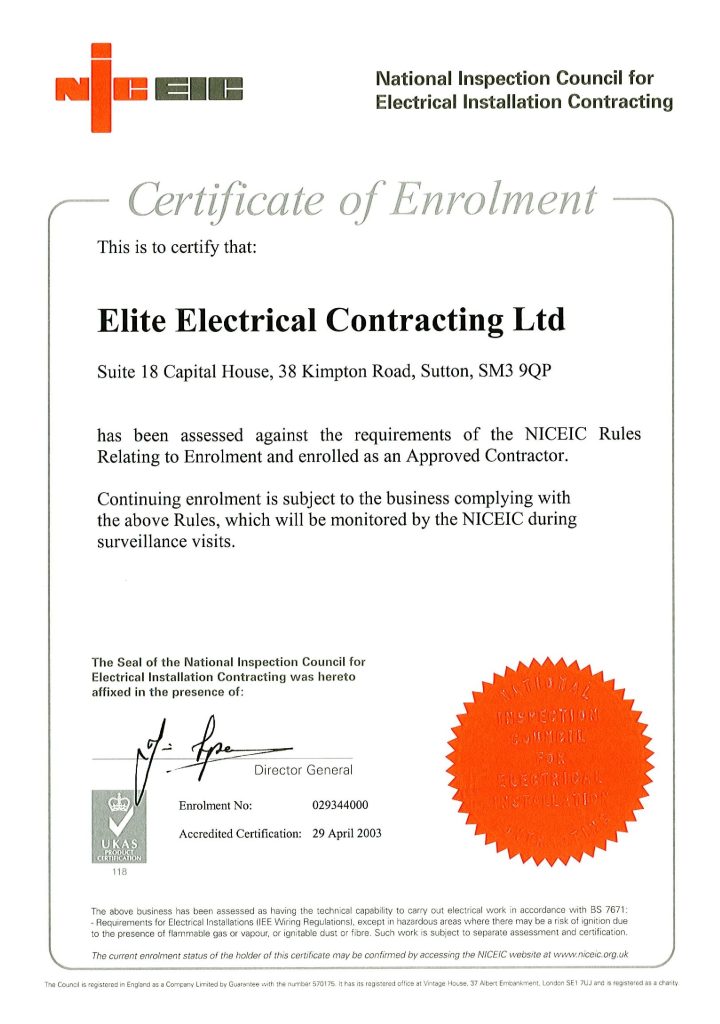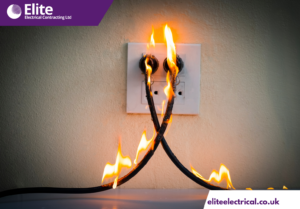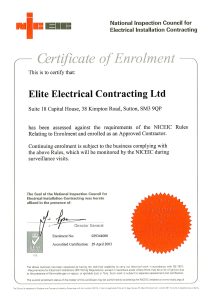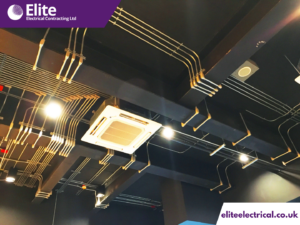Electrical Safety Certificates in the UK: What You Need to Know
Electrical safety is a paramount concern in the UK, as faulty electrical installations can lead to devastating consequences such as fires, electric shocks, and even fatalities. To ensure the safety of residential and commercial properties, the UK government has introduced various regulations and guidelines. One of the key requirements is obtaining an Electrical Installation Condition Report (EICR), also known as an electrical safety certificate.
Elite Electrical: A Trusted Provider
Elite Electrical, a trusted provider of electrical services in the UK, has been at the forefront of ensuring compliance with these regulations. With over 20 years of experience and a team of qualified electricians, Elite Electrical has established itself as a reliable partner for property owners and landlords seeking to maintain the highest standards of electrical safety.
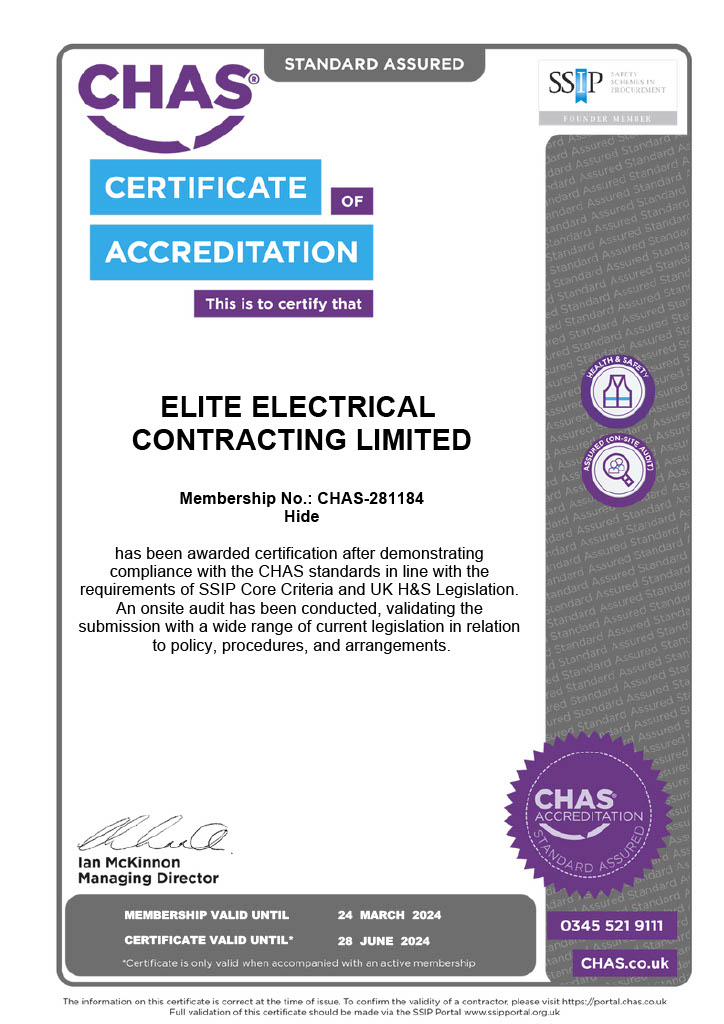
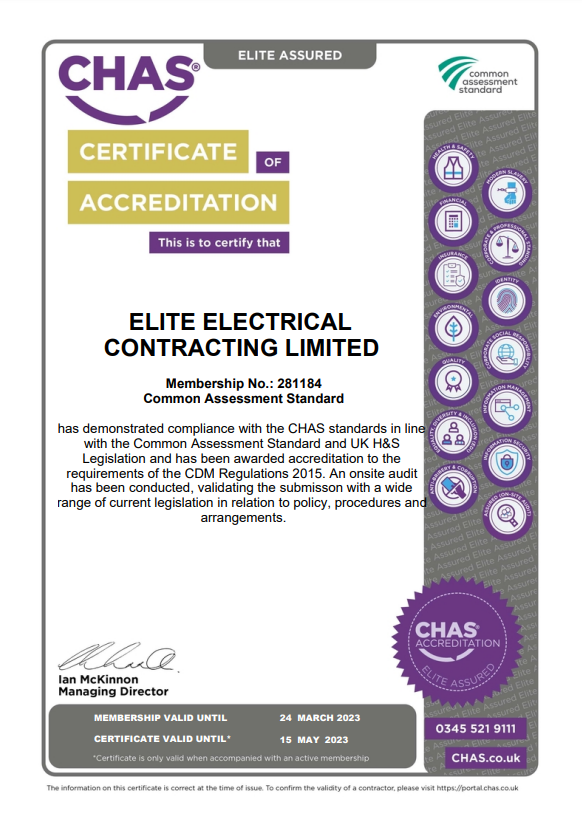
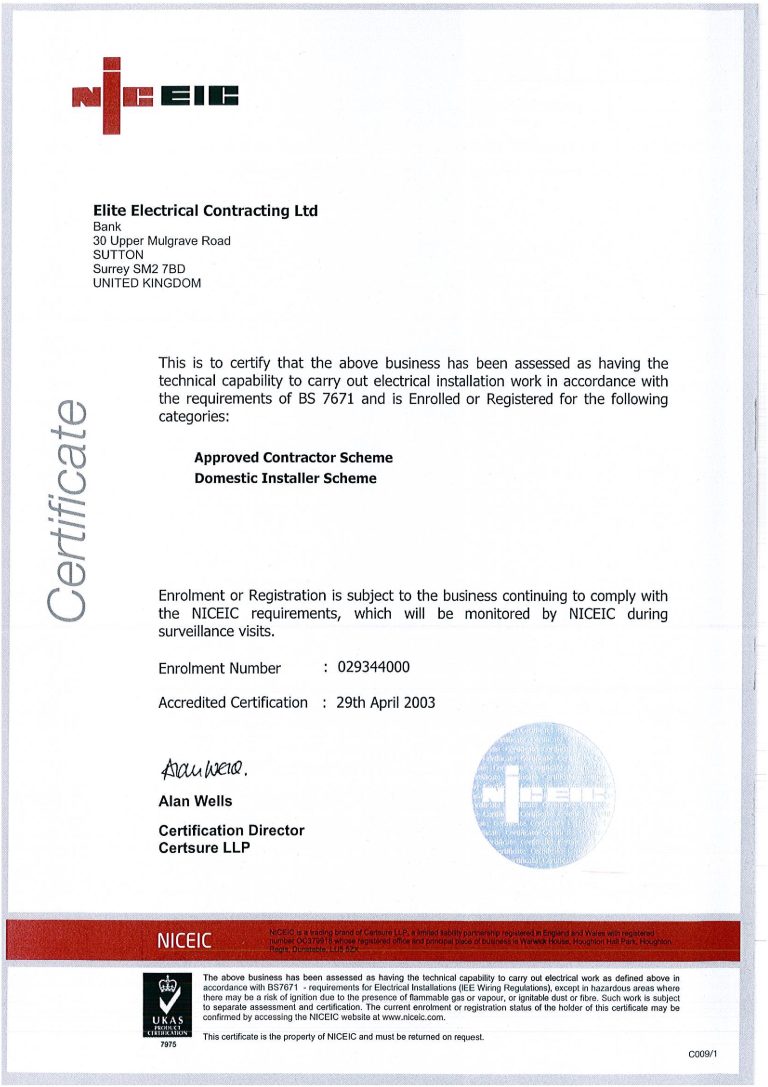
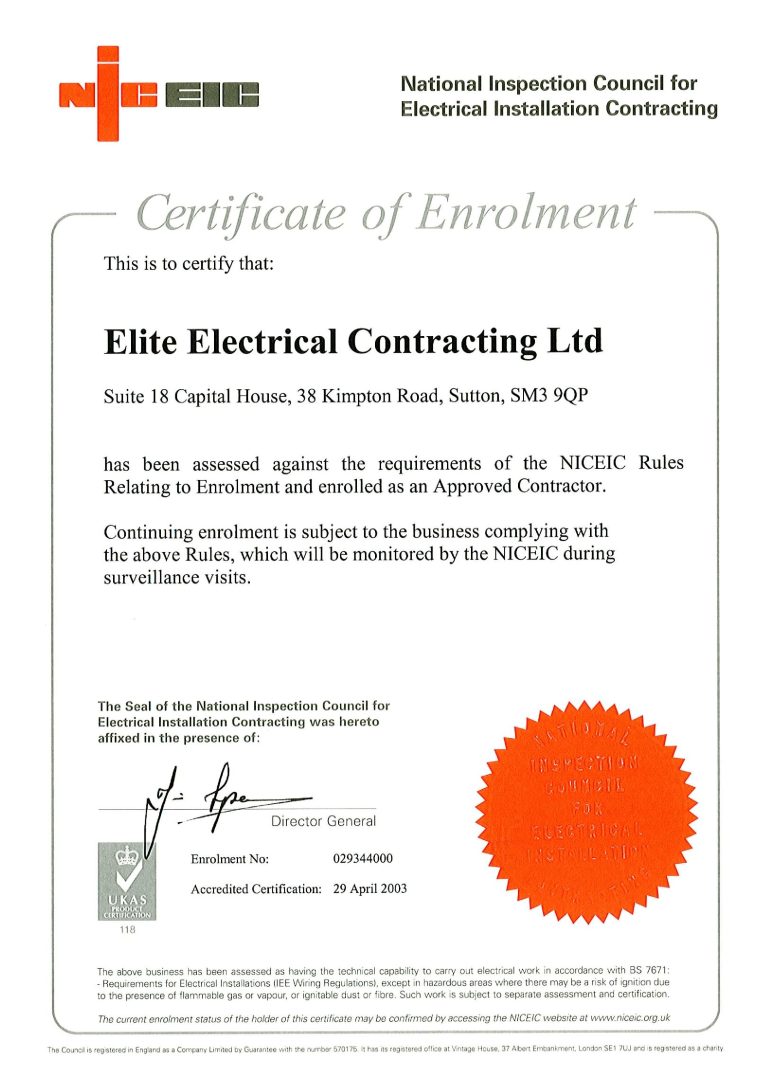
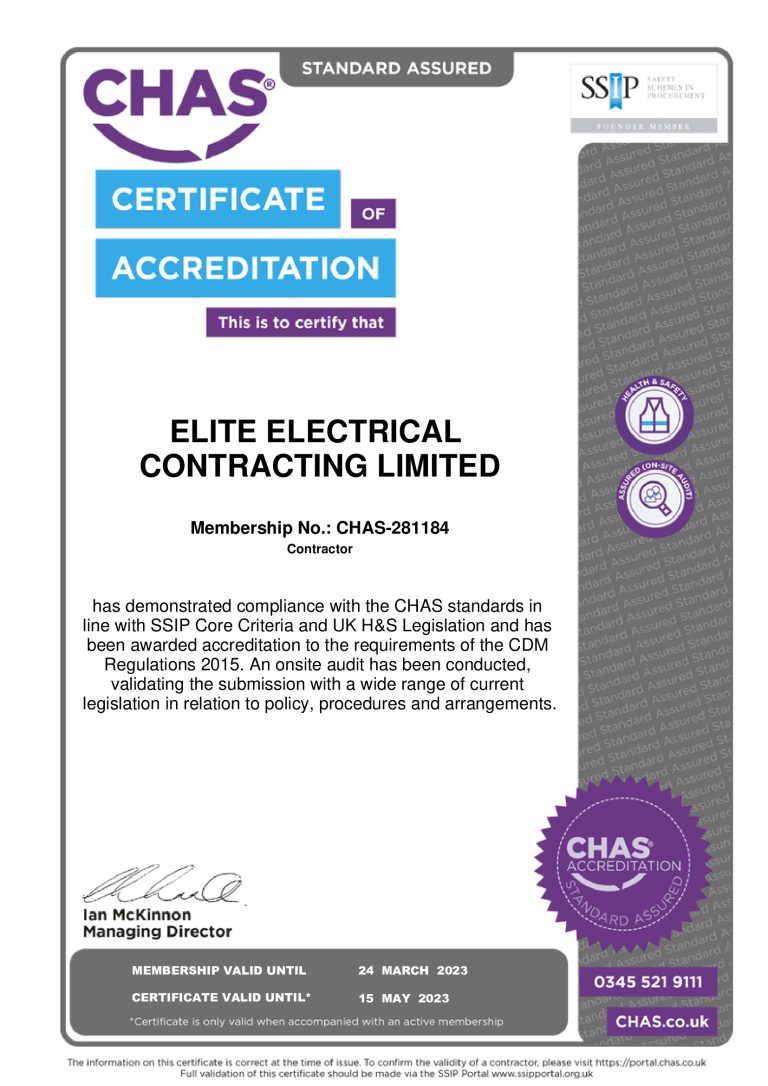
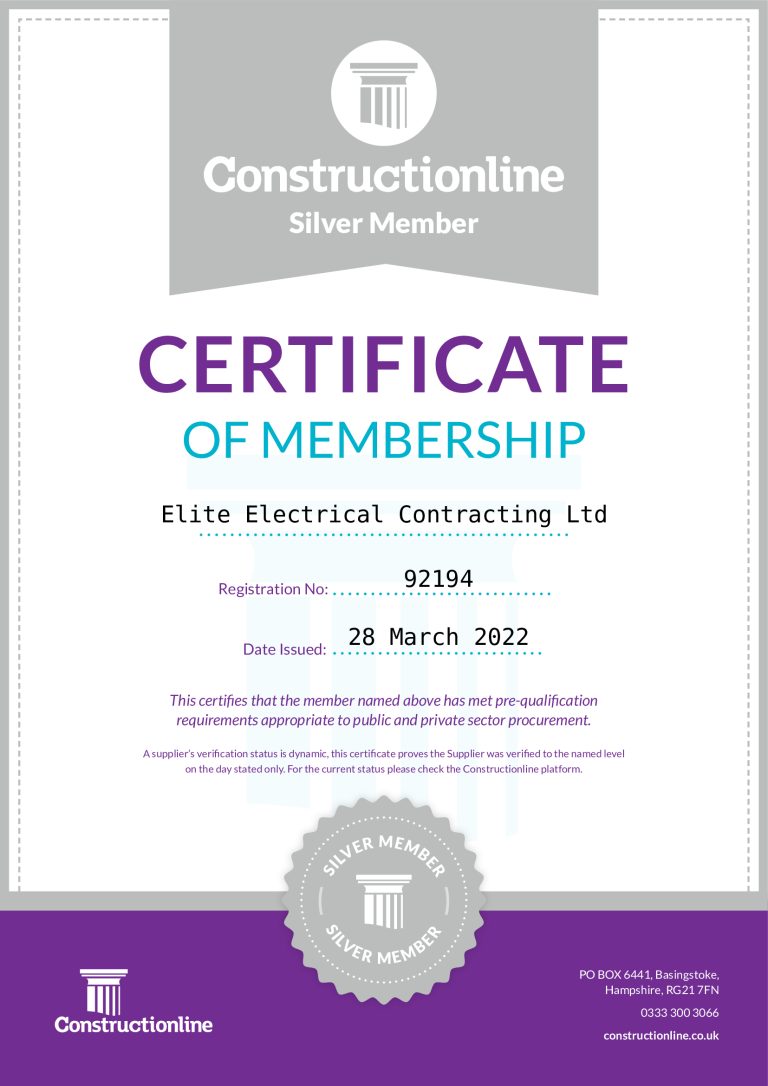
What are Electrical Safety Certificates?
Definition of EICRs
Electrical Installation Condition Reports (EICRs) are documents issued by qualified electricians to confirm that the electrical installations within a property are safe and meet the necessary standards. These certificates are essential for ensuring the well-being of occupants and complying with UK laws and regulations.
Purpose of EICRs
The purpose of an EICR is to identify any potential hazards or deficiencies in the electrical system, such as faulty wiring, outdated components, or overloaded circuits. By conducting a thorough inspection and testing of the electrical installation, qualified electricians can assess the overall condition of the system and provide recommendations for any necessary repairs or upgrades.
Legal Requirements for Electrical Safety Certificates in the UK
In the UK, landlords and property owners have a legal obligation to ensure the safety of electrical installations in their properties. The Electrical Safety Standards in the Private Rented Sector (England) Regulations 2020 and the Landlord and Tenant Act 1985 are two key pieces of legislation that govern the requirements for electrical safety certificates.
Specific Regulations Governing EICRs
These regulations stipulate that landlords must obtain an EICR at least every five years or whenever there is a change of tenancy. For commercial properties, the frequency of inspections may vary depending on the type of business and the level of risk associated with the electrical installations.
Importance of Compliance
Failure to comply with these regulations can result in hefty fines and potential legal action. Property owners who do not provide a valid EICR upon request from local authorities or tenants may face penalties of up to £30,000. It is crucial for landlords and property owners to prioritise electrical safety and maintain up-to-date EICRs to avoid these consequences.
Key Certification Bodies in the UK
NICEIC (National Inspection Council for Electrical Installation Contracting)
The National Inspection Council for Electrical Installation Contracting (NICEIC) is the UK’s leading voluntary regulatory body for the electrical contracting industry. Established over sixty years ago, NICEIC assesses the competence of electricians and maintains a register of over 26,000 approved contractors. This organisation plays a crucial role in ensuring that electrical work is carried out safely and to the highest industry standards.
Importance of NICEIC Accreditation
NICEIC accreditation assures clients that their chosen contractors are qualified and competent to perform electrical work. Approved contractors undergo rigorous assessments covering their work, documentation, and the competence of their staff. This not only enhances consumer confidence but also ensures that electricians adhere to national safety standards and regulations, including the IET Wiring Regulations (BS 7671). For contractors, being NICEIC registered can be a significant competitive advantage, demonstrating a commitment to quality and safety in their services.
Overview of Constructionline Accreditation
Constructionline is a leading procurement and supply chain management service in the UK. It provides a platform for contractors to demonstrate compliance with industry standards and regulations. Membership with Constructionline indicates that a contractor has undergone thorough vetting regarding their financial stability, health and safety practices, and overall capability.
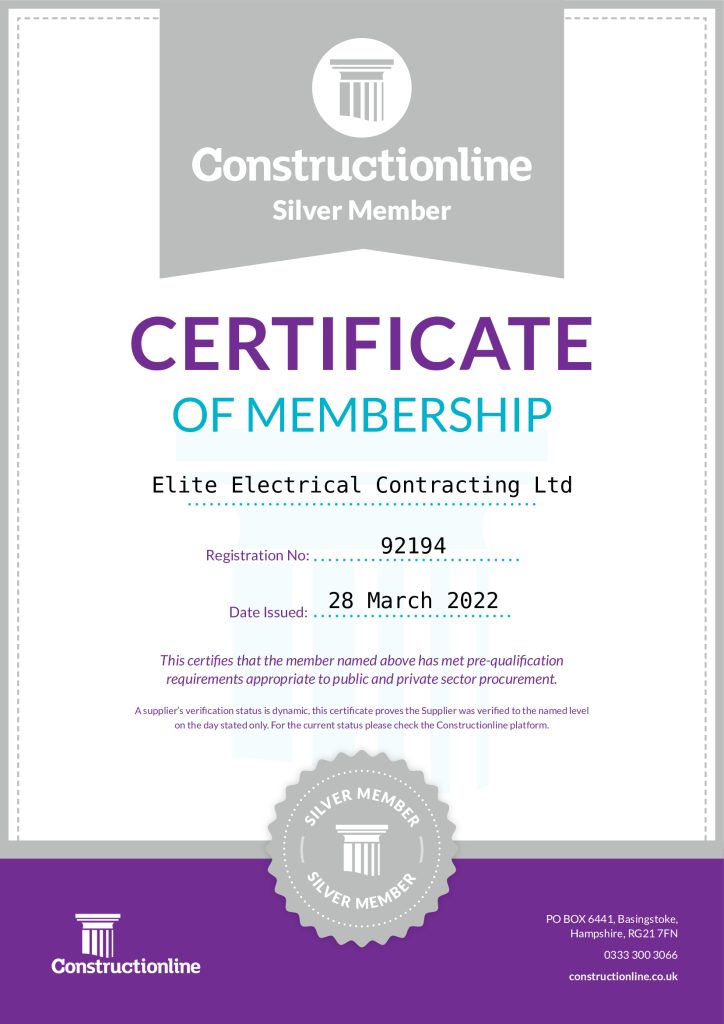
Elite Electrical’s Membership
Elite Electrical’s long-standing membership with Constructionline enhances its credibility in the market. This accreditation signifies that the company meets high standards of professionalism and reliability, making it an attractive choice for clients seeking electrical services. The association with Constructionline not only strengthens Elite Electrical’s reputation but also assures clients that they are working with a reputable contractor committed to maintaining industry best practices.
Acclaim SSIP (Safety Systems in Procurement)
Acclaim SSIP (Safety Systems in Procurement) is an accreditation scheme designed to help businesses demonstrate their commitment to health and safety. This certification is particularly relevant for contractors operating within high-risk environments, such as electrical installation work.
Importance of Health and Safety Standards
Acclaim SSIP accreditation ensures that companies have robust health and safety policies in place. For clients, this means that they can trust that their contractors prioritise safety and comply with relevant regulations. By obtaining this accreditation, Elite Electrical reinforces its dedication to maintaining safe working environments for both employees and clients.
The Process of Obtaining an Electrical Safety Certificate
Inspection and Testing
The process of obtaining an Electrical Installation Condition Report (EICR) begins with a comprehensive inspection conducted by qualified electricians. During this inspection, electricians assess various aspects of the electrical installation to ensure compliance with safety standards.
Components Typically Inspected
Common components inspected during an EICR include:
- Wiring systems
- Sockets and switches
- Light fittings
- Fuse boxes
- Electric heating equipment
- Ventilation fans
In some cases, additional equipment such as solar panels or security systems may also be evaluated.
Conditions for Issuing an EICR
An EICR is issued only when the inspection results are satisfactory. If any issues or defects are identified during the assessment, electricians will provide recommendations for necessary repairs or upgrades before issuing the certificate.
Explanation of Report Codes
The EICR includes specific codes to indicate the condition of various components:
- C1: Danger present – immediate remedial action required.
- C2: Potentially dangerous – urgent remedial action required.
- C3: Improvement recommended – no immediate danger but improvements are advisable.
These codes help property owners understand the urgency of any issues found during the inspection.
Duration of Validity
The validity period for an EICR varies depending on the type of property:
- Residential properties: Typically valid for 10 years.
- Commercial properties: Usually valid for 5 years.
- Rented accommodation: Must be renewed every 5 years or upon change of tenancy.
Recommended Frequency for Inspections
It is recommended that property owners schedule regular inspections based on their specific circumstances:
- Every 10 years for domestic dwellings.
- Every 5 years for offices, schools, hospitals, leisure centres, and retail spaces.
- More frequent inspections may be necessary for high-risk environments such as factories or industrial installations.
Common Issues Identified During Inspections
During EICR inspections, electricians often identify common issues such as:
- Faulty wiring or connections
- Overloaded circuits
- Inadequate earthing or bonding
- Outdated or damaged electrical components
Importance of Addressing Identified Issues
Promptly addressing any identified issues is crucial to ensure ongoing electrical safety. Ignoring these problems can lead to increased risks of electrical fires or shocks, potentially endangering occupants’ lives and property.
Benefits Beyond Compliance
In addition to ensuring safety compliance, EICRs can provide valuable insights into improving energy efficiency within properties. Electricians may recommend upgrades or modifications that can lead to reduced energy consumption and lower utility bills.
Contribution to Sustainability Efforts
Optimising electrical systems not only enhances safety but also contributes to broader sustainability efforts. By implementing energy-efficient solutions, property owners can reduce their carbon footprint while also benefiting from long-term cost savings on energy expenses.
Conclusion
In conclusion, prioritising electrical safety is not only a legal obligation for property owners and landlords in the UK but also a crucial aspect of ensuring the safety and well-being of tenants and occupants. By obtaining Electrical Installation Condition Reports (EICRs) and adhering to the regulations set forth by governing bodies, property owners can mitigate risks associated with electrical hazards, enhance energy efficiency, and maintain compliance with the law.
Ensure Your Safety Today—Contact Elite Electrical!
If you’re looking for trusted electrical services in Cheam, Surrey, or throughout London and the surrounding areas, contact Elite Electrical today. Our team of qualified electricians is ready to assist you with inspections, testing, and all your electrical installation needs.
Contact Us:
- Address: 30 Upper Mulgrave Road, Sutton, Surrey, SM2 7BD
- Phone: 020 8644 3200
- Email: [email protected]
Don’t compromise on safety—reach out to us now for a consultation or to schedule an inspection!

